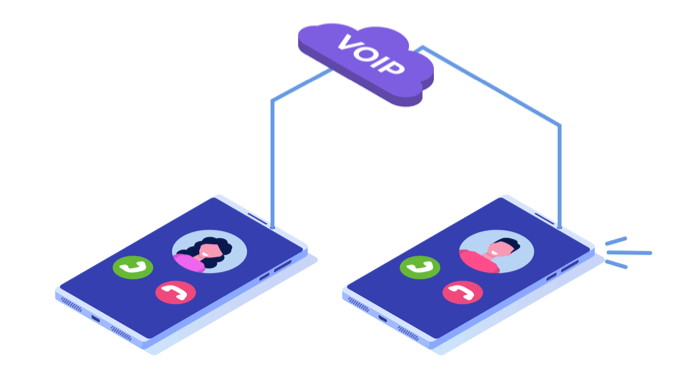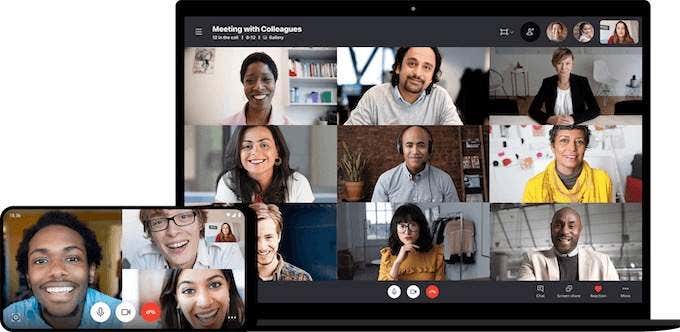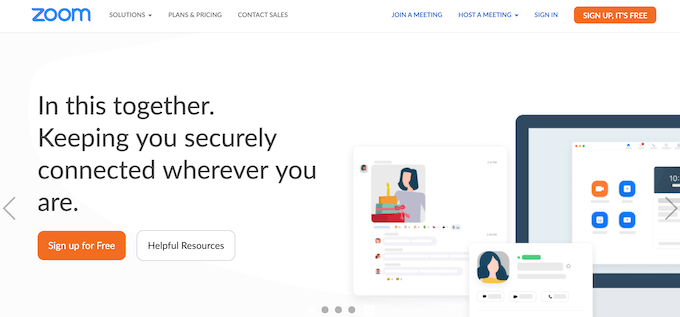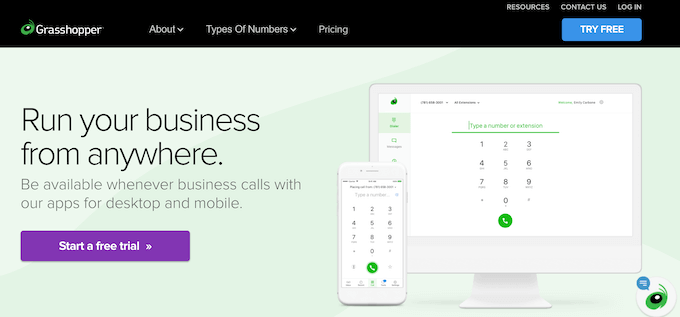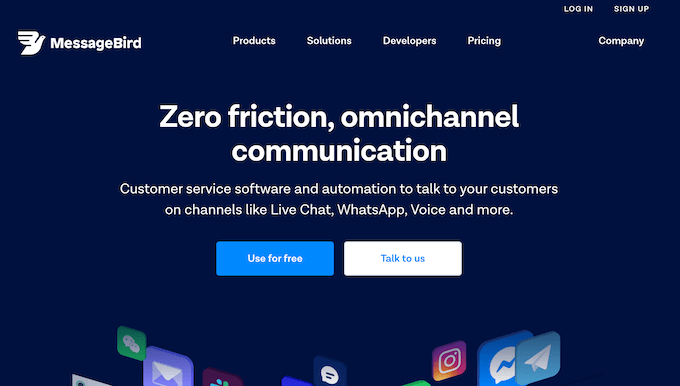You can use VoIP when there’s internet but no cell service, or simply to save money on long-distance calls. There are plenty of different VoIP providers to choose from. To help you decide whether Skype is enough for you or you need a more advanced provider like Grasshopper or MessageBird, we’ve put together a list of the top places to get VoIP services to work from home.
What Is VoIP & How Does It Work?
Before you choose the right VoIP provider for you, you should learn how VoIP works and what makes it better than a traditional phone service. VoIP converts your voice into a digital signal, then sends it as data over the internet. When you’re using VoIP to call a standard cell phone, the digital signal is then converted back to sound on the other end.
What You Need To Get Started
If you want to switch over to VoIP, you’ll need to set up your own VoIP system. It could just be your smartphone or your computer. In that case, you’ll be able to make voice calls using certain VoIP apps. You can also use special VoIP software on your computer. Some of the VoIP programs like Skype will even let you call regular landline or mobile numbers. However, free calls are usually restricted to those who also have the app. You’ll have to pay to call an actual phone number. Alternatively, you can use a regular landline phone and a digital VoIP adapter. The adapter plugs into a socket or into your router and converts your phone into a VoIP system.
Where To Get VOIP Services
Using VoIP is more efficient since it’s cheaper than using normal phone lines. Plus, you get extra features that are not available through your normal phone, like video calling, recording your calls, and forwarding them online. These are all useful features when you work from home. Depending on the VoIP setup you’re going to use, you might want to choose a different service.
Best For Computer Use
Most of the VoIP services made for computer use also have mobile apps that you can install on your smartphone. However, to get the most out of these programs, we recommend using them on your computer.
Skype – For Calling Landlines
Today Skype is many things, from a reliable chat app to a screen sharing tool. It’s also one of the oldest and most recognized VoIP services. You can use it to make video and audio calls for free to any other user who has the app installed on their computer. Skype is also one of the VoIP apps that comes with an option of calling regular landlines. You can buy a subscription to call any phone number in the U.S., all of North America, or use the World Skype Credit service to call worldwide.
Zoom – For Ease Of Use
Skype’s direct competitor, Zoom offers a great and stable VoIP service, and promises a connection that “outperforms other services”. Zoom comes with a number of standard features, like free and unlimited video and audio calls, chat room, ability to record your calls and forward it to participants later, as well as a mobile version of the software. However, the big difference between Zoom and Skype is that with Zoom you can call people that never registered on the site and don’t have the app installed on their computer or phone. When you work from home and need to call external clients, this is very useful.
Discord – For Superb Audio Quality
Discord offers free communication over text, video, and audio. Your opponents also don’t need to register or download the program. It’s enough for them to follow your link to join the meeting. Discord was originally created to cater specifically to a gaming community. However, it’s also proven to be an efficient VoIP service. The main reason why you would want to choose Discord as an alternative is the voice quality – it’s crisper and clearer in comparison to other services.
Best For Smartphone Use
If you’re looking for a VoIP app to use primarily (or exclusively) on your phone, have a look at one of the following services.
Viber – For A Great Mobile Solution
Viber is a great multi-purpose software that combines the attributes of a messaging app and a VoIP service in it. Some of the features it offers include unlimited audio and video calling, private and group chats, as well as landline calls as a part of the subscription. If you’re not a big fan of Skype and specifically the mobile version of the service, Viber will make a great alternative.
Signal – For Privacy Features
Signal is considered one of the most secure messaging apps. It’s a great pick for anyone who puts their privacy first. With Signal you can be sure that all your communication, whether it’s in audio, video, or text form, is private and secure thanks to the encryption mechanisms the software uses. There’s also a desktop version of the app. Both mobile and desktop apps are free.
Best For Business Use
All of the apps on our list are suitable for both residential and business use. However, if you’re a freelancer who works from home and does a lot of work over the phone or a small business that depends heavily on the communication channels, you might want a VoIP service that offers a little extra. Depending on your goals, you’ll need to pick the VoIP provider that suits you and your company best. For freelancers, Ooma is a great choice. It’s easy to set up, comes at a reasonable price, and provides excellent customer support. If your work or business requires you to always be on the move, give Grasshopper a try. You get reliable calling no matter where you go, 24/7 support, and a choice of vanity numbers that will be easy to remember for your customers. For those looking for an end-to-end solution, have a look at MessageBird. It allows combining all of your communication channels in one API platform. Message Bird comes with a free trial version so you can test the service before paying for it.
Change Your Communication With VoIP
Switching over to VoIP has many advantages, including unlimited calls and texts. Though before you make the change, make sure to check your internet connection. Since VoIP services rely on your broadband, the quality of your calls will depend on how fast (or slow) your internet is. Do you prefer VoIP over traditional calling? What VoIP services have you used to help you work from home more efficiently? Share your experiences with us in the comments below.

